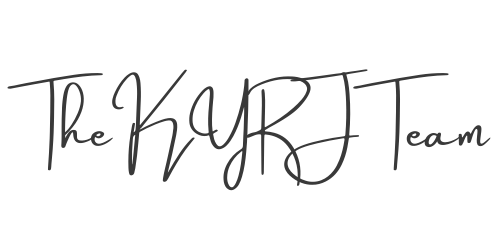DISCLAIMER: The content of this website, by its very nature, is general, whereas each user’s situation is unique. Therefore, please note the information contained within this website is for informational purposes only. All efforts have been executed to present accurate, up to date, and reliable, complete information. No warranties of any kind are declared or implied. Users of this website acknowledge that the Know Yu Rights Jamaica website is not engaging in the rendering of legal, financial or professional advice.
Please read our Privacy Policy & Terms of Use for further information.
According to Jamaica’s Sexual Harassment Act, “sexual harassment” refers to any unwanted sexual advance made by one person towards another person. This includes actions that are considered offensive or humiliating by the person receiving the advance. It also covers situations where the advance interferes with the recipient’s work performance or creates an intimidating, offensive, or hostile work environment.
Therefore, sexual harassment can happen to men as well, not just women.
Here are some key characteristics of sexual harassment:
- Unwelcome conduct: The behavior must be unwelcome by the target. This means that the target has made it clear that they are not interested in the behavior, either verbally or through their actions.
- Sexual nature: The behavior must be of a sexual nature. This can include anything from sexual comments and jokes to unwanted touching and assault.
- Hostile, intimidating, or offensive work environment: The behavior must create a hostile, intimidating, or offensive work environment for the target. This means that the behavior makes it difficult for the target to do their job or that it makes them feel uncomfortable or unsafe at work.
Types Of Sexual Harassment
Witnessing or experiencing this kind of behavior isn’t just disturbing; it can take a significant psychological toll on victims and others within the workplace. It’s crucial to understand that harassment can be overt, like inappropriate touching, or it can be subtle, like pervasive sexist comments.
Different forms of sexual harassment exist, and it’s crucial to identify them so you can take appropriate action. In the workplace in Jamaica, these can range from physical interactions to verbal remarks and even to non-verbal cues that make someone uncomfortable.
Physical harassment often starts subtly but can escalate quickly. Any physical contact that hasn’t been consented to should raise immediate concern. Examples include: unwanted touching (such as patting or pinching), groping, or kissing, sexual assault, or following someone around.
Verbal harassment isn’t just about the words said; it’s about the intent behind them. Off-color jokes, sexual innuendos, detailed questions about one’s love life, or persistent requests for dates after being turned down can all constitute sexual harassment. These comments might seem innocuous to some but can create a hostile work environment for others.
Non-verbal harassment is conveyed through body language and other non-verbal cues. Leering, inappropriate gestures, or displaying sexually suggestive images in the workspace are instances of this form of harassment. It’s subtle yet deeply impactful, contributing to an environment where employees feel unsafe.
Another form that has become more prevalent with advances in technology is digital harassment. This type covers inappropriate emails, texts, and social media communications. It’s crucial not to overlook these digital interactions, as they can be pervasive and intrusive.
Remember that “sexual harassment” is unwanted sexual advances towards you and according to the Sexual Harassment Act, “sexual advance” includes any one or more of the following acts, forms of conduct or behaviour:
- physical contact of a sexual nature;
- a demand or request for sex or for favours of a sexual nature;
- the making of sexual suggestions, remarks or innuendos;
- the showing of pornography or the display of images or objects of a sexual nature; and
- any other physical, gestural, verbal, non-verbal or visual conduct of a sexual nature.
How To Report Sexual Harassment
If you’re facing sexual harassment at work, know that it’s not just wrong; it’s also against the law.
Once a person has been sexually harassed at work, they may submit a claim in writing to the employer as the first stage of the reporting process.
Persons should be guided by the publication of a sexual harassment policy statement by the employer which includes among other things:
- A definition of sexual harassment;
- A procedure for addressing sexual harassment claims;
- Measures to ensure confidentiality; and
- A statement of persons’ rights to seek redress from the Sexual Harassment Tribunal.
Complaints that are not satisfactorily resolved internally may be then brought to the Sexual Harassment Tribunal.
Complaints may be submitted up to 6 years after date of the incident, beginning from the date of the last incident if the harassment was a series of acts.
N.B. We recommend that if you are harassed, you should document every instance. Write down:
- dates,
- times,
- places,
- what was said or done, and
- potential witnesses.
This isn’t just about creating a record; it’s also about substantiating your experience if you decide to take action.
Can Sexual Harassment Happen Outside Of Work?
The sobering truth is that sexual harassment isn’t confined to the office space in Jamaica. In today’s world, work-related settings are broader than ever before. This includes off-site meetings, company retreats, work dinners, and even the rapidly growing realm of remote work.
Now what happens when these incidents occur outside the traditional office in Jamaica? The same rules apply. Your employer is responsible for providing a safe working environment, no matter the location. If an incident happens at a company-sponsored event or even during a virtual meeting, it’s still covered under workplace sexual harassment policies.
Sexual Harassment At Work In Jamaica
Another important thing to note is that making a false claim about being sexually harassed has repercussions. Making false complaints can result in a penalty of up to $1,000,000 or 3 months in jail.
In Jamaica, addressing the issue of sexual harassment at the workplace is a significant step towards creating a safe and respectful environment for all employees. The Sexual Harassment Act plays a crucial role in defining and combating such misconduct. By promoting awareness, understanding, and enforcement of the Sexual Harassment Act, workplaces in Jamaica can foster a culture of respect and ensure the well-being of their employees.

